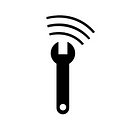The Radical Potential of Libraries
Liz Cormack (she/her) is a 2021 Summer Fellow with the Mayor’s Office of New Urban Mechanics, working with the Boston Public Library and the Environment Department to build and evaluate placemaking projects at BPL Free Outdoor WiFi Zones.
When I first moved to Boston twelve years ago, trips to the library were about renting DVDs, browsing the magazine collection, and settling into a comfortable chair to do homework for hours. Everyone has a different experience of the library, which is what makes libraries so full of potential.
When the Boston Public Library (BPL) closed at the start of the pandemic, their critical role in the functioning of the community became unmistakable. Residents depend on libraries for everything from computer and internet access, to language and legal support, a place to bring kids for storytimes, and a teen center after school. Libraries have, since the industrial revolution, served as an entry point for newly arrived immigrants to learn, engage, and get support pursuing citizenship.
A year without physical access to libraries posed a critical question: once reopened, what should the future of the library look like?
This summer, in collaboration with BPL and the City’s Environment Department, we’re experimenting with two overlapping ideas: how could libraries evolve to be remote work zones and serve a critical role in heat resilience as Boston gets hotter?
Libraries sit on city-owned land, and at a moment when trust in public institutions is waning, they remain a highly trusted public entity across neighborhoods, age groups and more. As a network of public spaces, libraries are positioned to provide dynamic outdoor amenities in addition to their indoor resources. Many patrons I’ve spoken with are still concerned about COVID-19, especially until their children are vaccinated, and outdoor seating feels safer and more comfortable.
Boston has one of the densest distributions of libraries by population in the country. To address disparities in access to the internet at home, BPL rolled out free outdoor WiFi zones at 14 locations while branches were closed, ensuring that residents could access the internet safely in open air.
Building on that success, we’ve created six shaded pop-up work areas this summer to make that free WiFi easier to access and more fun to use. I’ve been amazed, the more time I spend at various BPL branches, at the community that surrounds them — each branch is unique, with a different energy, different needs in the neighborhood, and different programs and opportunities to animate the space.
Many BPL locations already have beautiful outdoor space, and a big opportunity to further invest and activate those spaces. With a limited budget, we’ve been able to explore low-fidelity interventions that bring joy, color, shade, and seating, from picnic tables to misting tents. I’m so excited that they’re already serving as dynamic spaces to promote city resources like Rental Relief Office Hours, Summer Eats pickups, and more.
In some locations, like Egleston and Codman Square, the libraries sit right on the street, where outdoor work cafes serve as much needed shade and a welcoming entrance into the library for passersby. At other locations, like Mattapan and Brighton, dedicated patio areas off the parking lots have huge potential to become permanently shaded cafe areas — we’ve already seen outdoor WiFi usage double at Brighton after installing more comfortable seating and shade.
As David Leonard, President of the Boston Public Libraries, told us in a conversation with myself and other MONUM fellows this summer, “a library is about the space and the programs that animate them.” Libraries consistently poll as the most trusted public institution in the United States. Public libraries in the U.S. began as literary salons, where groups gathered to discuss the latest publications and debate the issues of the day. I wonder, as we explore the unique potential of each library branch in the city, how we could further invest in their potential as civic hubs: outposts of the city’s services, a gathering place for civic dialogue, and a place where people from all walks of life can come together in a truly public space.
Boston is where American libraries as we know them today got their start. The Central library at Copley opened in 1854 as the first large collection that was free to the public. When the East Boston library opened in 1870, it was the first branch library in the United States. Even as physical records give way to a digital world, the role of libraries is more important than ever. The future of BPL is bright — and it may be so much bigger than we know.
Liz wants to make Boston the country’s most equitable and creative city. Liz moved to Boston in 2009, and fell in love; after 10 years as a user experience designer and researcher working in gaming, indoor agriculture and IoT, she’s working to apply her diverse interests towards the design of the city. She holds a B.S. in Communication Design from Emerson College, and is starting a Master’s in Urban Planning at Harvard Graduate School of Design this fall. Liz has served on the Board of Directors of the Transformative Culture Project since 2014, a non-profit focused on increasing access to creative careers for youth in Boston.
About the Fellowship:
The New Urban Mechanics Summer Fellowship is designed for entrepreneurial students and professionals interested in working in public service. During this highly selective eight-week program, summer fellows work as a team and on their own projects, generating and implementing creative and thoughtful new prototypes to benefit the City of Boston.
